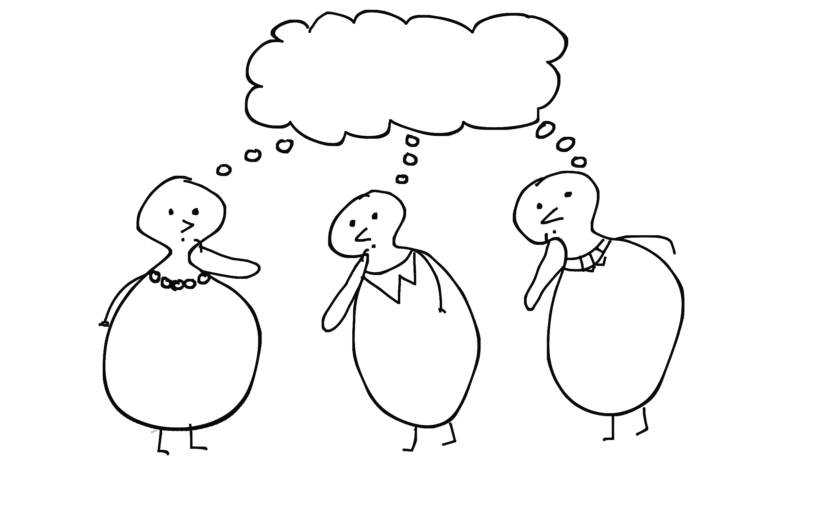This article is about how I polled native speakers to find out how weird they find the term “I wish you strength”. If you are here looking for the best English translation for “sterkte”, including some example texts, you should go here.
“Hey, strength!”
In the Netherlands, we have one go-to phrase that we use if another person is in, or will soon be in, a difficult situation. It can be condensed down to just one word: “Sterkte!” Strength.
If someone close to you is ill, dying or dead, if you are ill or dying, if you are depressed about being single, depressed about not being single, if you have a new job, if you have a presentation or if you dropped your mother’s favourite vase and are going to have to tell her about it, if you are sick of your boss but have to go in to work again on Monday, if you have to spend a whole day with your boring in-laws, if you have to eat your best friends terrible cooking…
If there is anything happening in your life that you have to deal with, and it’s not happy, then the Dutch wish each other sterkte. If they are feeling especially generous, they might say Hee, sterkte ermee, he? (“Hey, strength with that thing, yeah?”)
So is it just “I wish you strength”?
I don’t know if it is my British English or if it is the fact that it just sounded too Dutch to me, but saying “I wish you strength” in English always sounded off to me. I even worried that perhaps people would feel the well-wisher was implying that they are not a strong person.
On the other hand, I wasn’t sure, so I decided to crowdsource some language knowledge. I wanted to know if the phrase would sound “foreign” to a native English speaker, if it is a phrase that a native speaker would use. So I put up a questionnaire on Reddit, and asked the following question:
If you were going through a difficult period in your life, for example a death or serious illness in the family, and I sent you a card on which I wrote “I wish you strength”, how would you feel about that?
With the answer options:
That’s nice, and it’s good English
That’s nice, but it’s not good English
Are you saying I’m not a strong person?
Other:
I expected my survey to be filled in by 20, maybe 30 people, so I didn’t pay a lot of attention to making it perfect. In the event, though, it was filled in by almost 2000 (!) people. The age skewed young (because Reddit!).
Results
Here are the results:

Clearly, I was completely off the mark thinking that people might feel that the strength wisher is insinuating they are not a strong person, with only 2% agreeing with me.
There was a reasonable 22% that agreed with me that it sounded “off” (“it’s not good English”), but lots of people responded that they felt the English was fine.
However, the survey was not well-worded, so these results should be taken with about a kilo of salt. I should have asked something like “is this something you would say?” or “If someone is going through a tough time, what would you say or write to them?”
The open responses are the most interesting
I might be a lousy survey-maker, luckily a lot of my respondents were kind enough to write some extra words. It is those extra remarks that are most interesting for Dutch people, I think.
You can really see how mixed the responses are. However, if you scan through them, I think you will agree with me that the best course of action for Dutch people is to steer away from “I wish you strength”.
The remarks English-speakers made at the end of the survey
If someone wished me strength in a letter I would think it unusual and it would depend on the sender, but I might think that they’ve spent time on this letter choosing words carefully, and that in such a sense strength is a good word. It can suggest their support whilst implying that you are capable yourself of succeeding.
Wishing someone strength is idiomatic English, but not formal English. It is something you might hear someone say, but generally would not see written down.
I think it’s common for English folks to wish one another strength.
For “I wish you strength”; as a native English speaker I would consider it “good English” but would assume that the person does not speak English as a first language or heard the saying from someone who doesn’t speak it as a first language. It sounds a bit foreign in a way I just can’t describe. Normally, I think “I hope you can stay strong” or something similar would be used.
“I wish you strength” sounds perfect but is more suited for someone about to go through a hard time rather than someone who has just been through one. Probably a better translation would be “stay strong.”
I think wishing someone strength in trying times is fine if you follow it up wtih something. For example: “I wish you find strength to perservere in these trying times. I will be here to help you find that strength should you need it.” With no other context it would do nothing but confuse/insult the recipient of the sentiment and even with the context it could still come off as odd.
Wishing people strength is definitely something that happens in English.
I think saying you wish someone strength is a normal expression in hard times, at least in the US.
Wishing each other strength isn’t a common thing to do in English, but grammatically it’s perfectly fine.
“I wish you strength” makes perfect sense and is good English, but may sound somewhat religious or New Age-y. It seems to be a more popular phrase in the Wellness community in the USA for instance
“On the “wish you strength” question, I said “nice but not good English”. I couldn’t answer “good English” because you made me think about it, but if I got such a card I would not notice the slightly improper English.
In the suburban / semi-rural midwest US, it wouldn’t be out of the ordinary to hear “wishing you strength and comfort in this difficult time”. I didn’t find that phrasing of at all.
The strength phrase may vary in understanding based on how religious or mystical the listener is. But the phrase “give me strength” is known and used widely.
“I wish you strength” sounds very much like something I would hear at my (very non-traditional) synagogue — they often translate Hebrew in ways that feel like this, both unusual sounding due to the directness of the translation and also surprisingly poetic and powerful.
Generally phrases like “I wish you strength” are followed up with some context, like “I wish you strength in this trying time”.
I think “I wish you strength” makes total Sense in English, it’s just not super common to hear but I have heard it.
I’m super interested in the topic as I’m learning Dutch as a second language and funnily enough, immediately recognized it was relating to Dutch when you mentioned “strength”.
I thought “I wish you strength” was unusual but sweet.
I don’t wish “strength” for others, but I do tell some people to “stay strong”.
Open responses to the question
These people are responding to the question “If you were going through a difficult period in your life, for example a death or serious illness in the family, and I sent you a card on which I wrote “I wish you strength”, how would you feel about that?“
| I appreciate it, and it’s good English; but I absolutely would not use it myself if I were sending a card, because yes, I worry that the recipient can interpret it as saying they aren’t strong. It’s good English, but maybe a bit archaic It’s nice and it’s dated English The sentiment is nice, but it could be misinterpreted and isn’t something someone would often say in English. Doesn’t feel right, but it’s good English That’s nice, and it’s good English, but it feels foreign if someone said that to an American it’s good English but it’s trite I would understand but I would think you are not a native speaker of English it’s good English grammatically but isn’t a commonly used phrase. It’s weird, not wrong. It’s become good enough English over the past 20 or so years. Its a nice sentiment, but I would prefer if it elaborated — like, “I wish you strength to deal with your grief”. It’s fine English tbh even if it might not make 100% sense The english is fine, but on it’s own the statement lacks clarity in that situation. Givrs me the “thoughts and prayers”-vibe. But sounds like good english 🙂 It’s not a common English phrase but it isn’t necessarily bad, and I would appreciate it. as a linguist i’m having a hard time with this survey saying “good” and “bad” English, i would say it makes sense as it’s meaning is understanable Fine english, but overly trite and a little demeaning. That’s nice and it’s grammatically correct but doesn’t flow well It seems like the classic “just be positive!” mindsets that ultimately ignore the true struggles and feelings of the person; nothing matters except to be mentally strong. I get the jist, but it isn’t a common turn of phrase That’s cheesy but fine enough English That’s some empty platitudes, but fine English It’s fine, but sounds kinda dated/archaic It’s fine, it’s just a weird thing to say. The english is fine, it’s an unusual thing to say unless you are very religious That’s nice; English is malleable enough that, while it’s not PROPER English, it’s still fine. It’s good English, but it feels awkward Nice, but abnormal. Not necessarily bad English, but maybe from a different culture. That’s nice, good English but uncommon. it’s fine English, but a little rude That’s nice, fine English, little unusual though I dislike the sentiment, but I think it’s ok English This might be more appropriate to say to someone going through a challenging endeavor that ultimately is their responsibility. Saying it to someone who is going through a hard time might come off as distant and unsupportive (ie. “I can’t do anything for you but I wish you strength to get through it.”) I’d avoid using this phrase in those situations. I wouldn’t say it’s poor english, necessarily, but it’s definitely unusually worded It’s good English but a cliché sentiment. I would think Buddha or Asian culture I understand the sentiment, but the wording is awkward enough that I could see it being used as backhanded in some petty instances. Awkward word choice. That’s nice, but you’re either toxicly positive or haven’t ever dealt with a close death yourself. |




